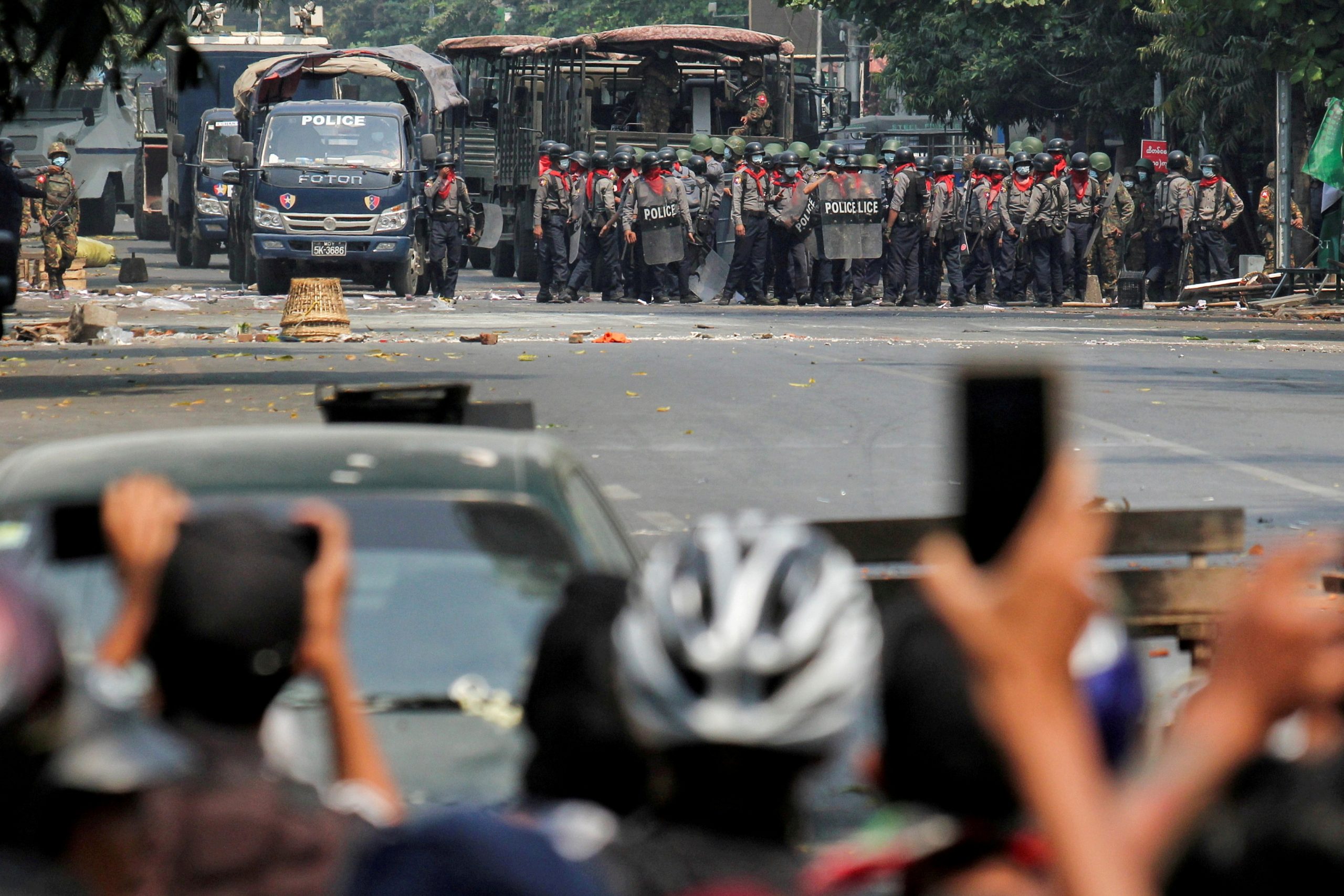
Chris Lange, FISM News
[elfsight_social_share_buttons id=”1″]
United Nations aid chief Martin Griffiths on Monday called for the Myanmar military to provide the U.N. with unrestricted access to citizens in desperate need of aid amid a deteriorating humanitarian crisis. Griffiths said that growing conflict and a failing economy has left more than 3 million people in need of life-saving assistance. The plea followed a closed-door meeting of the U.N. Security Council to discuss the crisis in Myanmar (Burma) coinciding with the first anniversary of the reelection of the Aung San Suu Kyi administration, which was deposed Feb. 1 by a military coup d’état.
According to a Reuters report, U.N. spokesperson Stephanie Dujarric urged Myanmar’s military to honor “the will of the people” in reference to the election she says was “deemed free and fair by domestic and international observers.” She further called for the country to work toward a “democratic transition.”
Citing growing concern over an uptick in military action in the country’s northwest region, Britain’s deputy U.N. Ambassador, James Kariuki, said the council meeting was requested amid concerns that actions of the Myanmar military mirrors its 2017 crackdown on Rohingya Muslims that forced over 730,000 people to flee into Bangladesh and led to “atrocities” committed against the Rohingya.
Myanmar is currently facing charges of genocide at the International Court of Justice, which it denies, claiming instead that the army rightfully targeted militants who attacked police posts.
Griffiths said the situation in the northwest of Myanmar had become “extremely concerning” as conflicts continue to escalate between the Myanmar military and both the Chinland Defence Force in Chin and the People’s Defence Forces in Magway and Sagaing regions.
“More than 37,000 people, including women and children, have been newly displaced, and more than 160 homes have been burned, including churches and the offices of a humanitarian organization,” said Griffiths, adding that attacks on civilians and civilian infrastructure, including humanitarian workers and facilities, are banned under international humanitarian law and “must stop immediately.”
U.N. officials also estimate that 20 million citizens of Myanmar are living in poverty, representing approximately half of its population.
Speaking from Yangon, Myanmar’s second-largest city, the U.N.’s senior-most humanitarian official, Andrew Kirkwood, provided a briefing to British correspondents Thursday, during which he stated that the humanitarian crisis was made worse by “a devastating third wave” of COVID-19 infections this summer. “So, effectively, what we have here is a crisis on top of a crisis with yet another crisis on top of that,” he said, as reported in an ABC News article.
International Crisis Group, an independent peacekeeping organization, has accused the Myanmar military regime of “brutally crack[ing] down on protesters, killing hundreds and detaining thousands” in a statement posted to their website. It goes on to read, “Although Rakhine State has so far avoided some of the worst of the violence, the plight of the Rohingya remains unaddressed and the prospects for a return of almost one million languishing in camps in Bangladesh looks bleak.”
